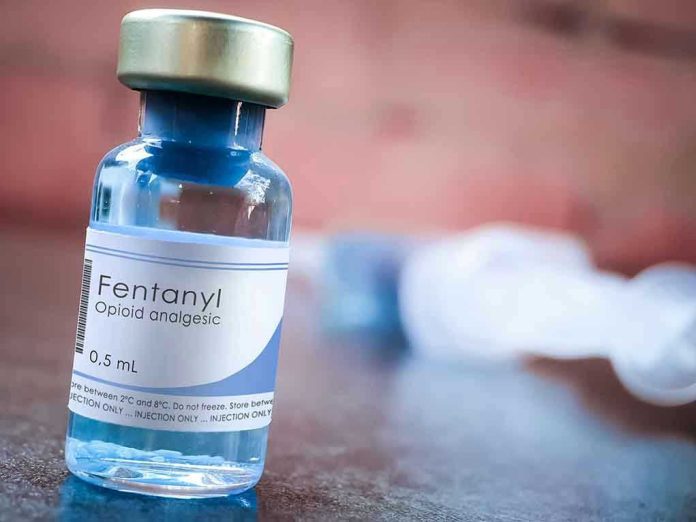
When your ex sends you chocolates, you probably expect a sugar rush—not a brush with death by synthetic opioid. But in Texas, a plot as wild as a late-night soap opera has landed one woman in the national spotlight, with a box of alleged fentanyl-laced sweets and a murder charge to boot. Will courtroom drama or a cautionary tale win out?
At a Glance
- Texas grandmother Pamela Jean Stanley indicted for allegedly plotting to murder her ex-husband with fentanyl-laced chocolates
- The plot unfolded after a tipster alerted police, triggering an undercover sting operation
- Stanley was arrested attempting to buy fentanyl from undercover officers and later indicted on multiple felony charges
- The case highlights the growing misuse of fentanyl in personal vendettas and the pivotal role of vigilant communities
A Murder Plot as Bitter as Dark Chocolate
Pamela Jean Stanley, 63, allegedly decided her ex-husband’s sweet tooth was the perfect chink in his armor. According to law enforcement, Stanley’s plan was as elaborate as it was chilling: disguise fentanyl-laced fancy chocolates as a congratulatory gift from a fake travel agency, complete with a honeymoon offer to celebrate his engagement. The idea? A fatal treat, delivered right to his unsuspecting doorstep. It could’ve been the plot of a pulpy crime novel, but this was real life, unfolding in Coleman and Weatherford, Texas. The murder weapon—a substance measured in milligrams, deadly enough to fell an elephant—was fentanyl, the notorious synthetic opioid that’s been making headlines for all the wrong reasons.
Stanley didn’t just talk the talk. She was allegedly caught on tape discussing how she’d inject powdered fentanyl into high-end chocolates, then mail the poison to her ex. But as with so many would-be criminal masterminds, what she didn’t count on was a concerned citizen with a direct line to law enforcement. One tip later, the Parker County Sheriff’s Special Crimes Unit was on the case, and Stanley’s plot started to unravel faster than a box of drugstore truffles left in a Texas summer.
How the Chocolates Melted Under the Heat
When the Parker County Sheriff’s Office got wind of the plan, they went full undercover. Officers posed as fentanyl dealers and lured Stanley to a motel in Weatherford, where she showed up after a long drive from Coleman. She thought she was closing in on her macabre recipe. Instead, she was walking straight into a sting operation. On May 30, 2025, Stanley was arrested, and the officers found over nine grams of meth in her car—enough to add an extra layer of legal woes to the already jaw-dropping charges.
The indictment came swiftly. By July 10, 2025, Stanley faced three felonies: criminal solicitation with intent to commit murder, criminal attempt to commit murder, and possession of a controlled substance with intent to deliver. Her bond was set at $450,000, and the investigation was declared closed—except for the inevitable legal fireworks awaiting in court. Sheriff Russ Authier credited the quick-thinking tipster and his Special Crimes Unit for stopping what could have been a fatal delivery and turning the would-be poison plot into a cautionary tale for the ages.
The Ripple Effect: More Than Just a Family Feud
Beyond the tabloid-worthy headlines, this case is a grim reflection of the times. Fentanyl’s deadly reputation isn’t news, but its use in calculated, personal vendettas like this is becoming a disturbing trend. Gone are the days when poisoned chocolates were just the stuff of Agatha Christie novels. Now, synthetic opioids are making their way into the criminal toolkit, and law enforcement is adapting with equal creativity—undercover stings, community partnerships, and tech-savvy investigations.
For the ex-husband, the story could have ended with a fatal bite. Instead, he’s left with more than a story for the grandkids—he’s a living testament to the importance of community vigilance. For Stanley’s family and the local community, the aftermath is less sweet: legal battles, public scrutiny, and a painful reminder of how quickly personal animosities can spiral into public crises. The broader impact? Renewed calls for fentanyl regulation, more resources for domestic violence prevention, and a spotlight on the intersection of substance abuse and family conflict.














